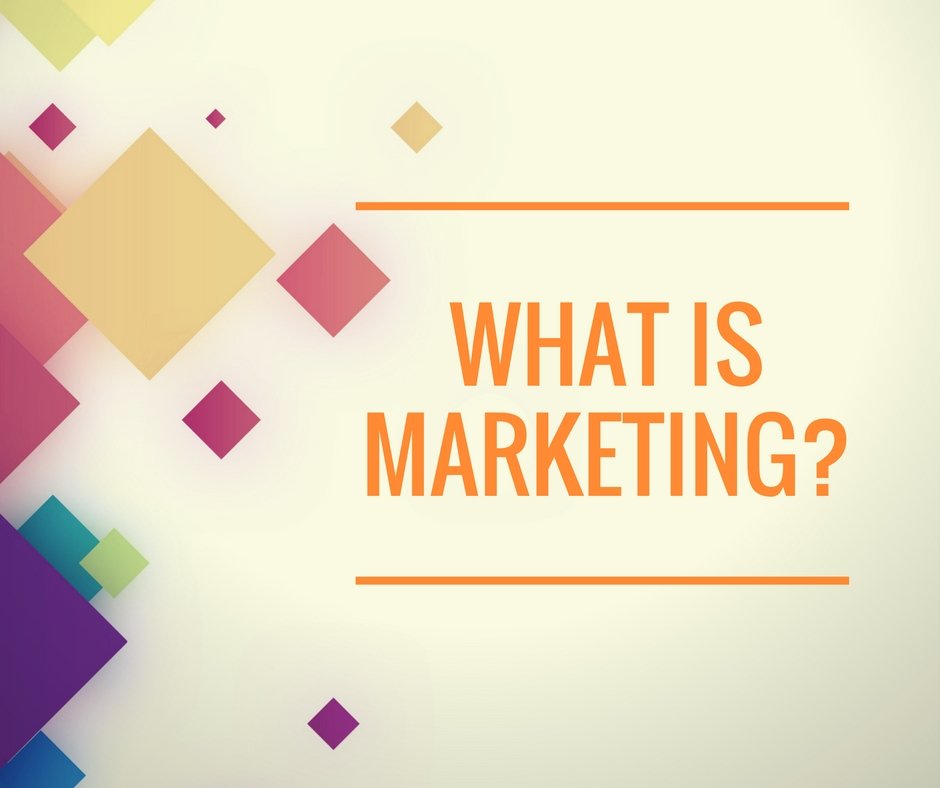What is marketing?
An article for start-ups or anyone not sure what marketing actually is...
You know the feeling when you're desperate to buy a specific product? You’ve got it pictured in your head and you need “it” …like, now. You are searching far-and-wide on foot and googling your heart out. You know you want "it", but can’t find “it”.Or maybe you don’t even know what you want or need, but when you stumble onto it, you know you must have it before anyone else and be the trendsetter.Right?Or is that just me?Enter your start-up business. Yes, you who has that fabulous new product I am desperate to purchase but don’t quite know yet. I actually want to find you!Marketing for a start-up can be overwhelming because you are starting at zero. Zero leads, zero customers, zero cash-flow. But while that’s a scary prospect, remember every big business, every business leader you aspire to, started at zero. The biggest step they took was to start their marketing so prospects could find them.Start your marketing understanding it will evolve over time, as will your business. Don’t be shy about telling people you’re starting out – you will be amazed how your ideal customers will be excited to be the trendsetters and to cheer you on (aka: marketing advocacy).
Okay, I hear your question: But how do I get in front of someone, anyone, to start the conversation?
Marketing is, by definition, a process to inform potential customers that your product exists. Don’t let anyone trick you into thinking it’s anything more complicated than: Applying various tactics to promote your product in various places (online and offline) at a price people will buy (aka: the four marketing Ps).Understanding this principle, there’s a pretty logical set of initial questions I have for any start-up business owner wanting marketing advice:
- What’s the product/service? And, how is it different from what is already in the marketplace?
- What’s your story? Why have you started this business? (Because, let’s face it, it’s easier to stay employed with a salary than risk everything to run your own business.)
- Who is your audience (aka: target market)? What problem are you solving for them? How will your product/service make them feel?
These questions usually end up on lots of tangents that also cover questions around your brand – an article topic of its own.Once I nut out some of the framework for what you will do for the marketplace there are key starting strategies in terms of communicating the answers to these questions.
- Website:Yeah, pretty important, but make sure it’s developed and designed with a clear objective – which should be for visitors to (a) buy, (b) contact you or (c) leave their name (so they end up in your sales funnel and you can continue marketing to them).
- Social Media:Usually cost effective and where so many people are hanging out. But, again be clear on your objective, which should be to get your followers/fans/likers off the social media platform and contacting you to purchase. Engagement is wonderful, but don’t lose sight that alone won’t pay your bills.
- Print collateral:I still believe it is good to have marketing material you can physically give people when you meet. Even if it’s simply a business card with basic information.
- Media Release:Depending on your business, I recommend writing a simple Media Release. Remember journalists are busy and deadline focused, so quickly cut-to-the-chase in detailing your product, why it’s unique and how it will change the marketplace. And if you have a product, consider sending it to journalists so they can see, touch, use and test your product.
- Public Relations (PR):Look beyond writing your own articles and write for other websites as a guest blogger or for publications that are often in need of quality content and ideas. Also consider webinars, live events, public speaking opportunities, exhibitions and trade shows.
- Strategic Alliances:If you’re not sure about going solo, or lack some confidence, and can find a synergetic product/service, think of connecting with them to do some reciprocal marketing. Note, don’t just ask others to promote you, think how you can equally promote and help their business too – this should be an equal business relationship.
- Lead Generation:Make sure you capture the details of people who aren’t sure about buying “now” but are interested. I am always shocked how many business owners have a website without a subscribe form or who do a live event or expo without a plan to take people’s details.
When implementing these tactics, be confident. There’s no place for shyness or modesty in the business world. You need to make your own luck and opportunities.And with this in mind, my number one marketing tip is networking. Introduce yourself to people, whether in person or online. Meet people! Meet lots of people with your sales and marketing hat nearby, but not automatically on (because we don’t want to be self centred and annoying!).One final tip is to consider incentives and rewards for customers who join at the beginning. Consider introductory prices. Seriously, what have you got to lose? Don’t worry about people who say discounting your price is not valuing your business. I promise, the value and experience of those first purchases is priceless.Understand marketing is less a science and more an art. There are no guarantees and it’s about trial and error. Set a budget and work out what you’re prepared to gamble and for how long, and what Return on Investment (ROI) you require to justify continuing your strategy.Try not to get overwhelmed by all this information. Just start and take heed of this Reid Hoffman quote: "If you're not embarrassed by the first version of your product, you've launched too late." How’s that for incentive to start!

